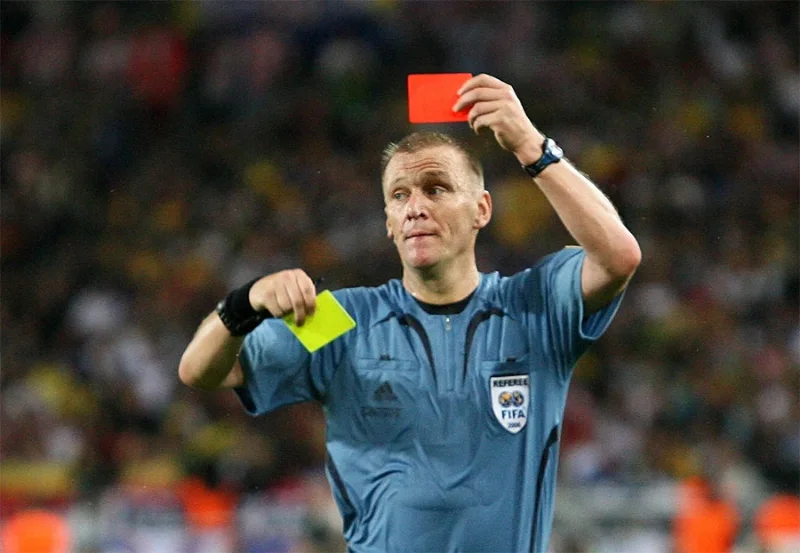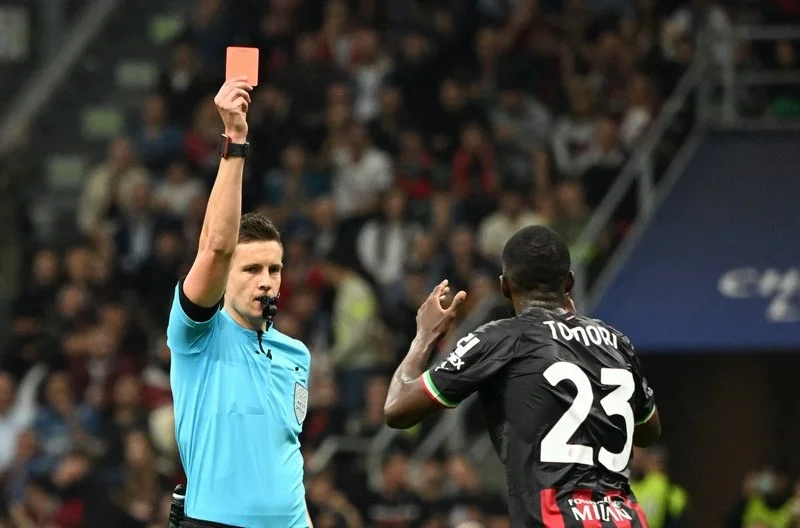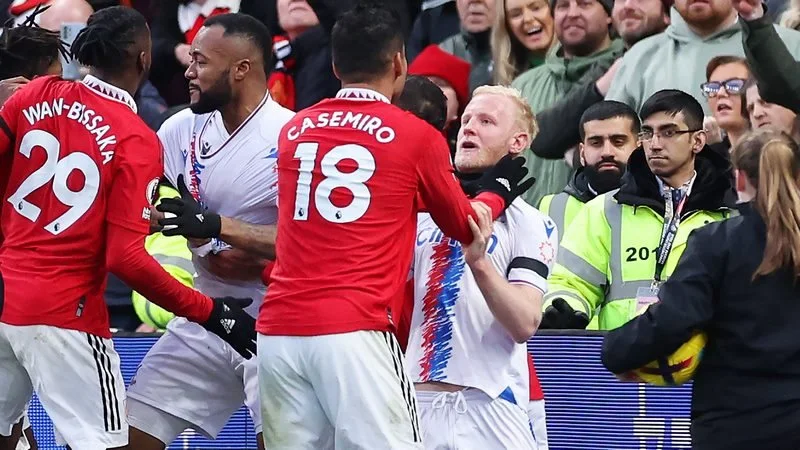In professional football, the referee uses two types of cards to manage and punish players on the field. Each type of card will have different levels of severity to punish the player depending on the situation. Please join bookmaker 90jili to provide detailed answers.

What is a player suspension?
Suspension means suspension, this is a famous concept that everyone knows in the football world. Presents a serious penalty to a player who acts unfairly or violates the rules of the match. This concept is understood as a player being forced to retire from competition in one or more subsequent matches depending on the severity of the violation.
The basic rules for suspensions in football are often adjusted to reflect the nature and severity of each situation. Suspension rules may vary depending on the league and football association. But they usually follow general principles of fairness and safety in the game.

What is a red card? Receiving a red card is suspended for how many games?
The red card is considered the heaviest punishment, followed by the yellow card, and the lightest is the verbal warning. The severity of a violation can result in a yellow or red card. In case a player receives 2 yellow cards in a match, it will be considered as receiving 1 red card, meaning he will be sent off the field and the corresponding penalties will be applied.
In addition, red cards are also applied when players commit fouls according to the provisions of Article 12 of the football rules. Even strange acts, mistakes with significant intentions. Or actions that threaten or challenge the referee and opposing players.
Actions that result in a direct red card
Severity level errors
While participating in the match, players may face red cards and have to leave the field immediately when committing serious violations. Especially if they use both feet to tackle the ball or perform malicious actions to hinder the opponent.
Using both feet to address the ball is generally considered a dangerous practice and can endanger opponents. Causing serious injury, the referee can apply a red card to discipline and prevent dangerous situations.
Serious fouls will result in a red card and a suspension for how many games?
Cold strikes if determined to be intended to cause injury. Or an unacceptable action within the match rules that leads to a red card. Actions such as hitting the opponent’s head, kicking the legs, or punches are all actions that the referee will handle seriously.
Taking revenge on an opponent when provoked is also considered an unacceptable behavior. Although it is understandable that players may experience stressful and pressured situations during matches. But remaining calm and not reacting violently is an important part of sports ethics. The referee will apply a red card to discipline and prevent these violent acts to keep the field a healthy place to play.

Offensive behavior
Players can face a red card when they perform actions that are considered insulting to the opponent. To better understand actions that are considered insulting to your team’s players, you can list the following situations:
The act of spitting towards opponents
Using impatient and harsh language to insult the other person
The player commits acts of racial discrimination through words or actions
Offensive acts will receive a red card
Blocking the ball is illegal
The important task of soccer players is to prevent the opponent from scoring to protect the home goal. However, blocking the ball must follow specific rules, and if players commit illegal actions, they can face a red card – the symbol of a serious penalty in football. Below are illegal ball blocking actions:
The goalkeeper is only allowed to touch the ball with his hand outside the penalty area with the referee’s permission.
If a player commits a foul in the opponent’s restricted area, he will be awarded a penalty kick.
Using hands to block the ball is a clear violation and the player may face a red card.
A player receiving two consecutive yellow cards in a match will be equivalent to receiving a red card, and they must leave the field immediately.
Red card law in FIFA
Receiving a red card is suspended for several matches and goalkeepers in soccer can receive a red card for many different reasons such as blocking or committing a harsh foul in the restricted area. Or play the ball with your hands outside the 16.50 m line.
Red cards can appear after conflicts and brawls between players. The players involved may be expelled from the field by the referee, meaning the team suffers a loss in number of players.

